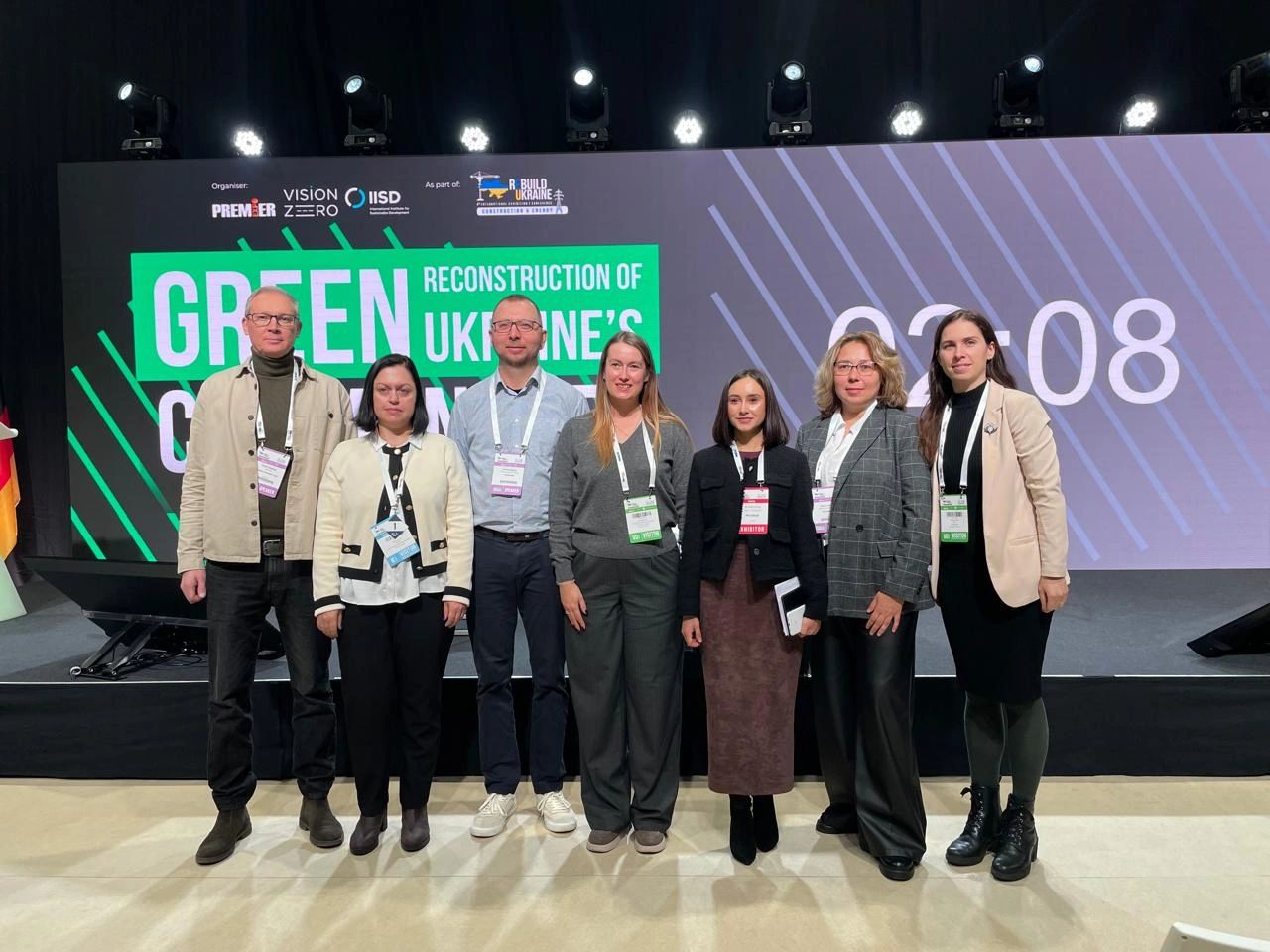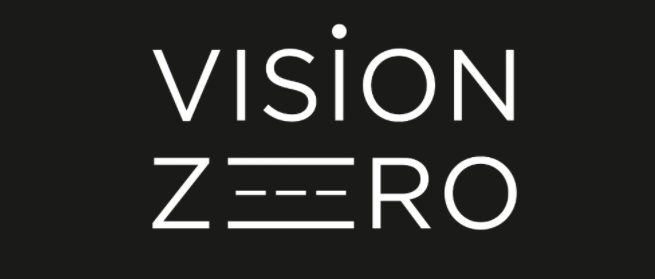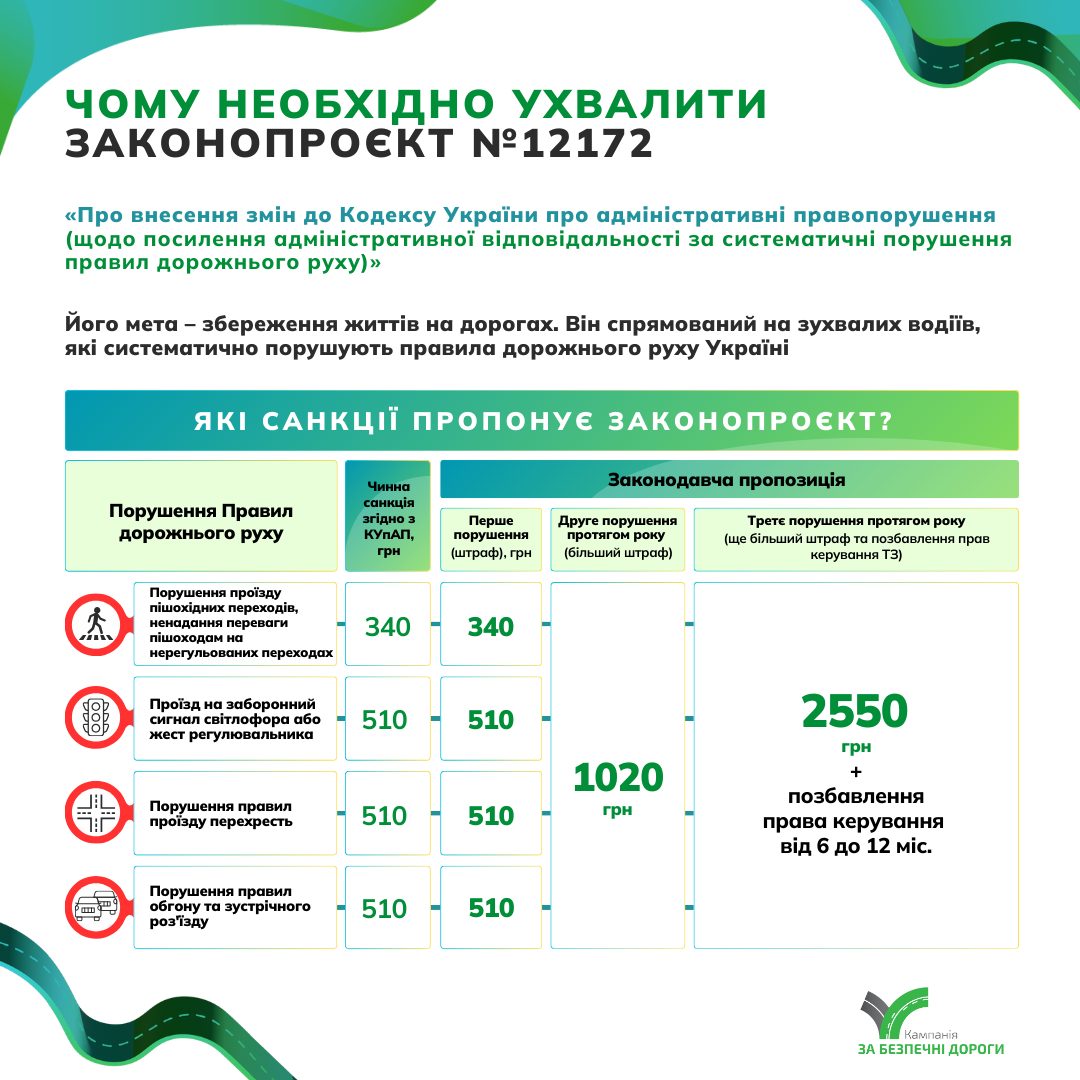
On November 13-14, 2024, the 5th international forum "ReBuild Ukraine" took place in Warsaw. The forum gathered more than 5,500 participants from 30 countries and about 500 companies from 18 countries, including more than 60 from Ukraine. In addition, heads of ministries, international programs, financial organizations and more than 30 communities from Ukraine took part.
The NGO "Vision Zero" became a co-organizer of the discussion "Green reconstruction of Ukrainian communities: key lessons from the reconstruction projects of 2023-2024". Ukrainian public organizations that are already involved in community reconstruction took part in the discussion. Representatives of the NGO "Ecoklub", "Vision Zero", "Energy Act for Ukraine Foundation" and "CEE Bankwatch" talked about the experience of reconstruction in communities and emphasized the need to attract direct financing for "green" reconstruction projects.
Along with the public sector, large-scale organizations in the field of restoration took part in the panel - the director of the "Energy Efficiency Fund of Ukraine" Yehor Farenyuk and the senior advisor of NEFCO in Ukraine Yuliya Shevchuk. The discussion was moderated by Anna Ackermann, a representative of the International Institute for Sustainable Development IISD (Switzerland). The discussion gathered about 150 international and Ukrainian listeners, including several mayors from Ukraine.
The non-governmental organization "Vision Zero " shared conclusions from monitoring the reconstruction of bridges in Ukraine. As an educational example, the organization cited the bridge on the approach to the city. Chernigov (M-01 highway), which was completed in October 2024. This 628-meter-long bridge is the largest known reconstruction project in the transport infrastructure, its expected budget was 5 billion hryvnias.
"As a result, this bridge has four traffic lanes, that is, it is twice as wide as the one that existed before. The new bridge is designed for 20,000 cars per day, there was no such flow here even before the full-scale war," said Viktor Zagreba, head of the NGO "Vision Zero".
According to him, the construction of such an excessive object means excessive consumption of materials and excessive emissions of greenhouse gases into the atmosphere, and therefore, this project cannot be called "green restoration". In addition, the project took place without a tender and without an environmental impact assessment. All this raises questions about accountability, transparency and rationality.
"If this bridge were rebuilt as it was, the state could repair several dozen or even hundreds of small and medium-sized bridges throughout Ukraine with the saved funds, because more than 25% of bridges in our country are in a state of emergency," added the speaker.
NGO "Ekoclub" from Since the start of the full-scale invasion, Riven has been helping communities install solar power plants (SPPs) for critical infrastructure such as hospitals and water utilities. During this time, more than 34 SPPs were installed, and at least 10 more are planned to be built by the end of the year.
"Communities have a great demand for green reconstruction projects - dozens of projects have been implemented, and thousands are needed. Communities are especially interested in the development of renewable energy. At a time when the enemy is shelling the country's energy system, it is important to provide critical facilities with a backup stable power supply," said Nataliya Lytvyn, project coordinator of the Ecoclub and the Energy Transition coalition.
The "CEE Bankwatch" network during the war promotes the need for the availability of funds for reconstruction at the municipal level. Current procedures and policies need to be changed, and the organization is working to make them more accessible.
"Effective investment in local reconstruction is needed, which will ensure sustainable development for a long period of time. From the experience of communities, we see: projects financed by banks must have a guarantor from a state institution. This can significantly slow down the process of obtaining funds by the community," comments Maria Luk'yanova, CEE Bankwatch green investment specialist.
The charity Energy Act for Ukraine Foundation has been working since the beginning of the war and is strengthening the energy security of critical infrastructure by installing solar power plants for schools and hospitals.

"During the occupation, many educational institutions were damaged. Lyceum in Gostomel was significantly destroyed. After de-occupation, thanks to international partners, our foundation installed a hybrid solar power plant for the facility. SES solves the problem of frequent power outages, thanks to its work, children can study without interruptions," reports Alina Sushchykh, Partnerships Manager of the Energy Act for Ukraine Foundation.
In order to increase the number of such projects, the foundation advises local self-government bodies to turn to more experienced communities or public organizations and implement projects together.
"Ekoklub" NGO believes that it is necessary to create convenient financial instruments so that communities can receive funds directly. But they used them transparently.
"Today, most international financial organizations provide funds that are managed by the ministry or regional councils. This needs to be changed, this approach takes a lot of time, central authorities do not know all the needs of communities. The funds should be managed by municipalities that better understand the situation on the ground and know the specifics of project implementation in their regions," Nataliya Lytvyn emphasizes.
NGO "Vision Zero" believes that in order for future bridge projects to be green and rational, systemic changes are necessary at the state and local level.
First: it is necessary to apply planning, before starting to design and build, because now these tools are either not used at all, or are used purely nominally (for example, feasibility studies).
The second: to finally move to the design of bridges according to Eurocodes, and not according to DBN.
"Ukraine has been allowed to use these international design methods since 2013, but in practice there is still not a single bridge designed according to Eurocodes. As a result, the Ukrainian market of bridges is inaccessible to engineering companies from EU countries, which are able to design more economical, modern, climate-friendly and more economical bridges," Viktor Zagreba emphasized.
And the third point: rational and well-founded decisions should be made regarding the spending of public funds for the implementation of bridge projects in accordance with clear criteria and calculations, and not subjective political decisions.


